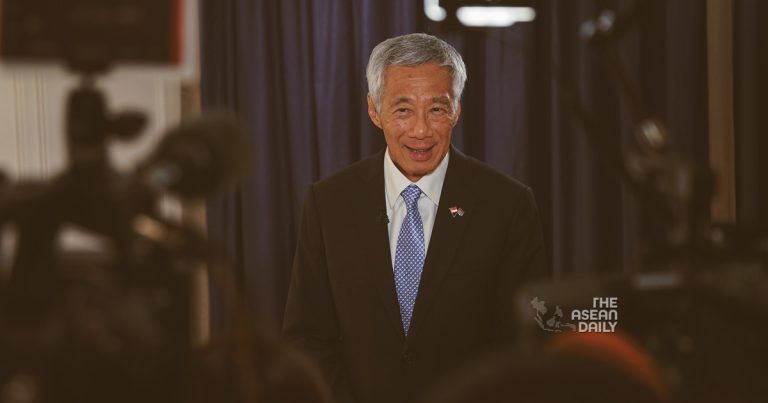11-5-2024 (SINGAPORE) In a candid interview, outgoing Prime Minister Lee Hsien Loong has shed light on the challenges that his successor, Lawrence Wong, and the fourth-generation leadership team may face as they take the helm of Singapore’s governance. Titled “The New Guard: Probing the Mettle of Singapore’s Next Leaders,” the article delves into PM Lee’s perspectives on the potential tests and probing that the incoming administration could encounter from other nations.
PM Lee acknowledged that during the leadership transition, countries might seize the opportunity to test the mettle of the new leaders and their policies. “I think that the new team will be probed, certainly. Tested, well, maybe gently, maybe issues will come, and people might push a little bit harder, or maybe not,” he said.
Emphasizing the need for preparedness, PM Lee stated, “But we must expect that some probing will come, and we must be ready to respond. Not in a harsh way, but quietly to stand our ground and let people know that we may have had a changing of the guard, but the new guards are prepared, and the old guards are still giving hopefully useful views to the new team on how to do it.”
PM Lee expressed confidence in Deputy Prime Minister Wong, who will assume the role of prime minister, highlighting his experience in building ties with partners through various international visits. Most recently, in April, DPM Wong visited Germany and France, while in 2023, he made a trip to the United States and met with various ASEAN leaders.
Reflecting on Singapore’s diplomacy, PM Lee acknowledged its role in carving a respected spot for the nation on the global stage. However, he also acknowledged the increasingly troubled external environment, with rising geopolitical tensions and shaken confidence in free trade.
As Singapore becomes more connected to the world through social media, internet memes, and travel, PM Lee noted that foreign policy and domestic policy have become increasingly intertwined, requiring adaptation from the city-state.
PM Lee recounted his private and unofficial trip to Taiwan in 2004 as deputy prime minister, which caused a “rumpus” and necessitated an explanation during his first National Day Rally as prime minister. He emphasized the need to balance Singapore’s long-term national interests with competing priorities, citing examples such as maritime boundary probes and trade opportunities.
Despite its small size, Singapore has maintained its relevance by forging relationships with other countries, mastering key issues, and bridging different perspectives. PM Lee highlighted Minister Grace Fu’s active role at UN Climate Change Conferences, where she helped negotiate carbon markets, demonstrating Singapore’s ability to facilitate dialogue and reach consensus.
While acknowledging that Singapore’s preparedness may sometimes put other parties on the defensive, PM Lee stressed the importance of being well-informed and ready to engage constructively.
Addressing relations with neighboring countries, PM Lee expressed satisfaction with generally good ties with both Malaysia and Indonesia, while acknowledging the inherent complexities and potential points of friction. Progress has been made on issues such as Pedra Branca and the Malayan Railway land deal with Malaysia, while landmark agreements on airspace management, defense cooperation, and extradition have strengthened ties with Indonesia.
Regarding the US and China, PM Lee acknowledged the underlying tensions and contradictions between their national positions and interests, which could result in continued tensions for decades. Singapore maintains good relations with both powers, with cooperation spanning various areas, including government-to-government projects and trade agreements with China, and investment, defense, and security ties with the US.
PM Lee emphasized ASEAN’s role as a cornerstone of Singapore’s foreign policy, contributing to and benefiting from regional stability. However, he cautioned that the peace and stability of the past 40 years cannot be taken for granted, especially amid the tensions between major powers. He stressed the importance of building regional resilience and contributing to peace, even as a small member of ASEAN.




